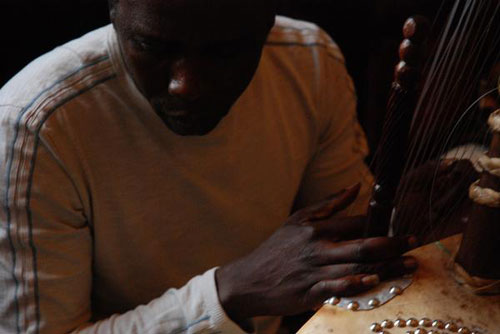“Fama Denke” is a traditional Malian song to make a note of.
One of the joys of traditional Malian music is that its corpus is a repertoire that spans thousands and thousands of years; some songs let us into the psychologies and mentalities of humans living in historical conditions that we cannot fathom who first composed these songs. The fact that the song continues to be sung is the icing on the cake. Not only are we let into ancestral psychologies and the mentalities but we along with others enjoy being let in. Some old songs are just incredibly beautiful however obscure their lyrics may feel. One such song is “Fama Denke.” Malian heavyweight Ballake Sissoko, amongst many other greats, has interpreted it on his album Tomora. “Fama Denke” translates to “Son of the King.” It is a song that reminds a fallen Prince to keep his composure despite having to face capital punishment because of his betraying his father in 1898, as West African Kingdoms had all fallen into the hands of colonial powers.

The prince in question’s name is not fully agreed upon. Some say that his name was Diaoulé Karamoko and others say that it was Djale-Karamorgho. What’s agreed on is that he was the son of Almamy Samory Toure, who belongs to the same lineage as the Guinean ex-President Sekou Toure. Almamy Samory Toure founded a short lived Empire, the Islamic Kingdom of Wassoulou that encompassed parts of present-day Mali, Guinea, Ivory Coast and Sierra Leone. Samory Toure is a considered a major figure in West African political history because of his conquests. Diaoulé was sent by has father to be an Ambassador in France and when he returned, he had conceived of his own projects and began to influence the Empire’s army. He was put to death b popular verdict.
“Fama Denke” begins with a display of instrumental prowess before any of lyrics are sung. The griot then proceeds to sing what sounds like a lament but is not. The Kora playing is generally easier to fall into then the words, given how removed the lyrics are from contemporary life. It is not a universal song that speaks to average conditions and that’s what’s fascinating about it standing the test of time. It is incredibly composed and a gorgeous song more so than anything else.
There are traditional several ways to play “Fama Denke”. The most traditional “Fama Denke” is played on a Kora in Sauta tuning or Tomora Meseng tuning. Both Sauta tuning and Tomora Meseng tuning are traditional ways to tune a Kora and are used to reflect local dialects. Tomora Meseng is meant to be a thinner pitch than the Tomoraba, the oldest way to tune a Kora.
Both Sauta tuning and Tomora Meseng are Eastern Gambian tuning, though Malian players most likely brought the tuning with them during their migrations. “Fama Denke” can also be played on two balafons as a purely instrumental song. Finally, the song “Fama Denke” gave birth to the more popular song “Kana Kassi,” which translates to “Do Not Cry,” a song which much more attuned to contemporary life that is often sung as a lullaby or even as a love song.
The song Fama Denke is a great listen and a great introduction to the end of the West African 19th century and the beginning of the 20th century. Most of all, however, it is a beautiful composition that has stood the time because of its magnificence.
Headline photo: Ballake Sissoko



which is piece on Tomoru do you consider an interpretation of Famadenke?
I gave a quick listen on spotify – perhaps it doesn’t have all the songs, but there is no song called that, or with the quintessential cordal arrangement. can you point it out to me?